Bound by words
Spoke away from crowds
Told to the ancient oak
on Samhain Eve
As the flocks call
For the great doorway to open
From Steel Truth by Ashley O’Neal

Seeing as it’s Samhain, and the time of year to commemorate the dead and acknowledge our own mortality, when poet Ashley O’Neal suggested a stroll to St Gobnait’s Cemetery, the well-known pilgrimage site near her home in Ballyvourney, I jumped at the chance.
St Gobnait’s contains the graves of an impressive array of Irish cultural heavy-hitters: Seán Ó Riada, Liam Ó Muirthile, Seán Dunne, Seán Ó Riordán all have their final resting place under the watchful gaze of a Gobnait carved by Cork sculptor Séamus Murphy, alongside countless other lesser-known but equally important musicians and poets from the Sliabh Luachra region.
The cemetery can be reached by road, but, it also being the season for appreciating woodlands, we opted to walk up the wooded hillside from the River Sullane to the ancient holy site.
You can listen to our walk and to Ashley reading a poem from her book, The Wren is Near, by clicking play on the short podcast above.
The salmon
Like the salmon in her family coat of arms, Ashley O’Neal has crossed the Atlantic and is swimming upstream towards her source.
“I’ve been across the Atlantic maybe six times: I’m a returned exile, in many ways,” she tells me, having coffee in the grounds of The Mills in Ballyvourney before our walk.
“In my world, the salmon has to make many journeys, but eventually has to come back to land from the sea, and go back to its origins. The salmon goes back to die. Aren’t we living in a time when the origins of something brand new is also in our midst? It’s not just death, it’s a transmutation into something else.”
Ashley spells her surname with an a, but the heraldry she is referring to is the same as that of the O’Neills, hailed by some as the oldest family in Europe.
“I’ve recently found my own ancestry,” she says. “Once you bring those two worlds together, the Irish and the American side, there’s a connection that you make that can begin to solidify or to heal, although healing is such a new-agey word: it’s more like, you know your duty, your responsibility. I think each family line has a sort of duty in it.”
“Even if you look at coats of arms, which did come later in history, I think there are still little links in there, little doors to knowing that your family holds a stewardship to something within society.”
If there’s a certain very Irish tiredness towards the many Americans who visit these shores each year and enrich the local tourism economy with their genealogical searches, notions of the Celtic and lack of familiarity with the dollar-euro exchange rate, it’s not something Ashley is inclined to include herself in.
No tourist she: she first came to Ireland 23 years ago, and has delved deep into the history and mythology of the places she’s lived.
The language of preservation
The sense of familial stewardship that Ashley perceives for herself is that of preserver; she believes that poets have an important role to play not only in preserving the deep forms of knowledge embedded in culture, but also in reconnecting this lore with the modern-day, in reminding people that the ever-narrowing, monocultural view of reality that we are currently in the thralls of is itself an illusion.
Many of her poems do exactly this work of interweaving mythology, the natural world and imaginings with our modern-day settings and life.
Her first book of poems, The Wren is Near, is a collection of poems written since she moved to Ballyvourney four years ago. It was shortlisted for the 2021 Patrick Kavanagh Award. She’s come to meet me a day before setting off for a residency at Cill Rialaig Arts Centre in Ballinskelligs, where she will be finalising work on her second book of verse.
Peripatetic childhood
Born and raised mostly in California, Ashley describes a peripatetic young life, with her family moving regularly throughout her childhood and teens. A sense of Irishness was present but not dominant.
“We moved every five years,” she says. “My father was a salesman, but I think he was an artist deep down, and he was very alive to places, very interested in history.”
“My father’s mother was a Conway, and she had huge influence on me and I had the storytelling imprinted on me from a young age. It grew over time, like a flower in a valley on its own. What I was looking for was so old, so origins-based.”
She has a degree in Fine Art from the University of California at Santa Barbara; although she had always written verse, it was, she says, always consigned to “the shoebox under the bed.”
It wasn’t until after she moved to Ireland that she started to take her poetry seriously, to compile and edit and eventually perform her work.
“When my father died, that’s when it became the most natural thing to take them out and to find my voice,” she says.
So in 2014, never having performed her work before, she set off to the Éigse Michael Hartnett Literary and Arts Festival, the annual event in honour of the Limerick poet held in Newcastle West, which includes an open mic event with a Best Original Poem award.
“I remember being so nervous,” she says. “I was third or fourth up, and I just remember the whole room becoming quiet: a breath went in, and I read the poem and then everyone was silent for about 20 seconds afterwards. I was like, ‘oh my God, either I’ve really pissed everyone off or else I’ve completely mesmerised them. But I did it, and if they don’t like it, it’s done.’”
“So I left; I was outside with my dog and someone came rushing out to tell me that I’d won.”
“That was my permission that I could do this, that acceptance by someone deeply respected in Irish culture. I had to go deeper and deeper. I knew a man called Dan Cronin who wrote a book called In the Shadow of the Paps. For twelve years we wrote letters back and forth; he was my teacher in the language of preservation.”
Sliabh Luachra
Ashley is drawn to the mythology of the nearby Paps, the twin peaks on the Cork-Kerry border, 20km as the crow flies from where we sit, that have represented the breasts of the goddess Anú into antiquity.
The mountains have a long association with the mysterious Tuatha Dé Danann, the race of people described in the Annals of the Four Masters as having arrived in Ireland 4,000 years ago, who, having lost a battle, were consigned to the underworld, where they became the Sídhe, the faerie folk of legend.
But Sliabh Luachra has a more recent and better understood history as a place of refuge and of cultural preservation: from the time of the plantations of Munster in the 16th century, dispossessed, evicted and starving Irish peasants sought refuge in the area, which was remote enough and inhospitable enough to be overlooked by the plantations.
In the relative safety of this harsh, boggy, mountainous region straddling the Cork, Kerry and Limerick borders, music and poetry flourished. It’s no wonder that St Gobnait’s cemetery is the resting place for so many famed poets and musicians.
Having lived in Co Clare, Ashley has taken refuge in Sliabh Luachra herself, moving to the Gaeltacht village of Ballyvourney four years ago.
The inner critic
Ashley doesn’t write at a desk, but while swimming, salmon-like, “out the river of life.” She spends a lot of time in nature but will also sit at cafés, picnic spots, or anywhere else that takes her fancy, with her trusty notebook.
At home, her editing process is a delicate one; she’ll avoid looking at what she’s written for at least a period of days.
“The inner critic is so strong in us that it would be like, ‘what’s that?’ So I don’t touch it. Sometimes it might be three months. But then I come back to it, and it’s an intuitive thing. I read aloud too, because you have your own natural rhythm that you need to trust.”
To Ashley, the inner critic is more tyrannical, and a greater threat to the creative process, than the critics that exist in the external world.
“There are critics around, arbiters of the world, and that’s fine,” she says. “If you want to keep going, you only have to go through yourself. You don’t put limits on your work, but you do get to refine it.”
“It’s only brief anyway: you only write the poem and edit it, and then it goes out into the world and it’s up to the other part of the world to accept that, anyway.”
A language of the heart
I’ve been working on a big story, and it’s been a week of fact-checking and Excel sheets and requests for clarification. I have been using language as a lepidopterist’s pin, as a spike upon which to trap the real.
Ashley’s speech is peppered with references to figures from Irish mythology, Greek mythology, African gods; there are references to nobility, to family lines, to concepts of peace and love and the ancient feminine. I find myself itching to fact-check her references: it’s a terrible disease and it’s entirely my own.
Living as we do in an age of unparalleled Scientism, it can be hard to remember that empirically derived reality is merely a pulsing permeable membrane, not a solid wall.
Talking to Ashley helps. It’s a reminder that language isn’t an unending prostration before the altar of the “real,” that it has other functions.
“We’re struggling with an over-culture that’s being whittled down to a singularity, to a mono-thing,” she says. “We can’t live that way: there are multiple things in this moment that are visible to us and invisible to us, and there are bridges between those worlds, and it’s as vast and as wide as you want it to be.”
Samhain is, of course, the time of year to recall and pay homage to these bridges between worlds. For Ashley, this comes in the form of poetry.
“A poem to me is a doorway to open up other realms, to create a discussion and maybe to leave something behind,” she says. “We don’t need a discussion about what’s real, we need a discussion about what’s good, what’s right, what’s hopeful, what’s feeling.”
“Our culture is heading down a wrong path. We’re leading ourselves down a path where our language is not a language of feeling, and a language of feeling is a language of nature, and a language of nature is what rules this joint, whether you want to recognise that or not.”
“The stars dictate our nature. The moon dictates the weather. But now, all we’re left with is a language of the mind; it’s not a language of heart, of ground, of central memory. Words have been turned against us in many ways. You have to find terms that speak through the old language, through the poems themselves. We’re talking about preserving an invisible realm, a realm of language that’s necessary to life.”
The Wren is Near by Ashley O’Neal is out now, published by Eridanus Press. You can find out more about the book or buy it here.





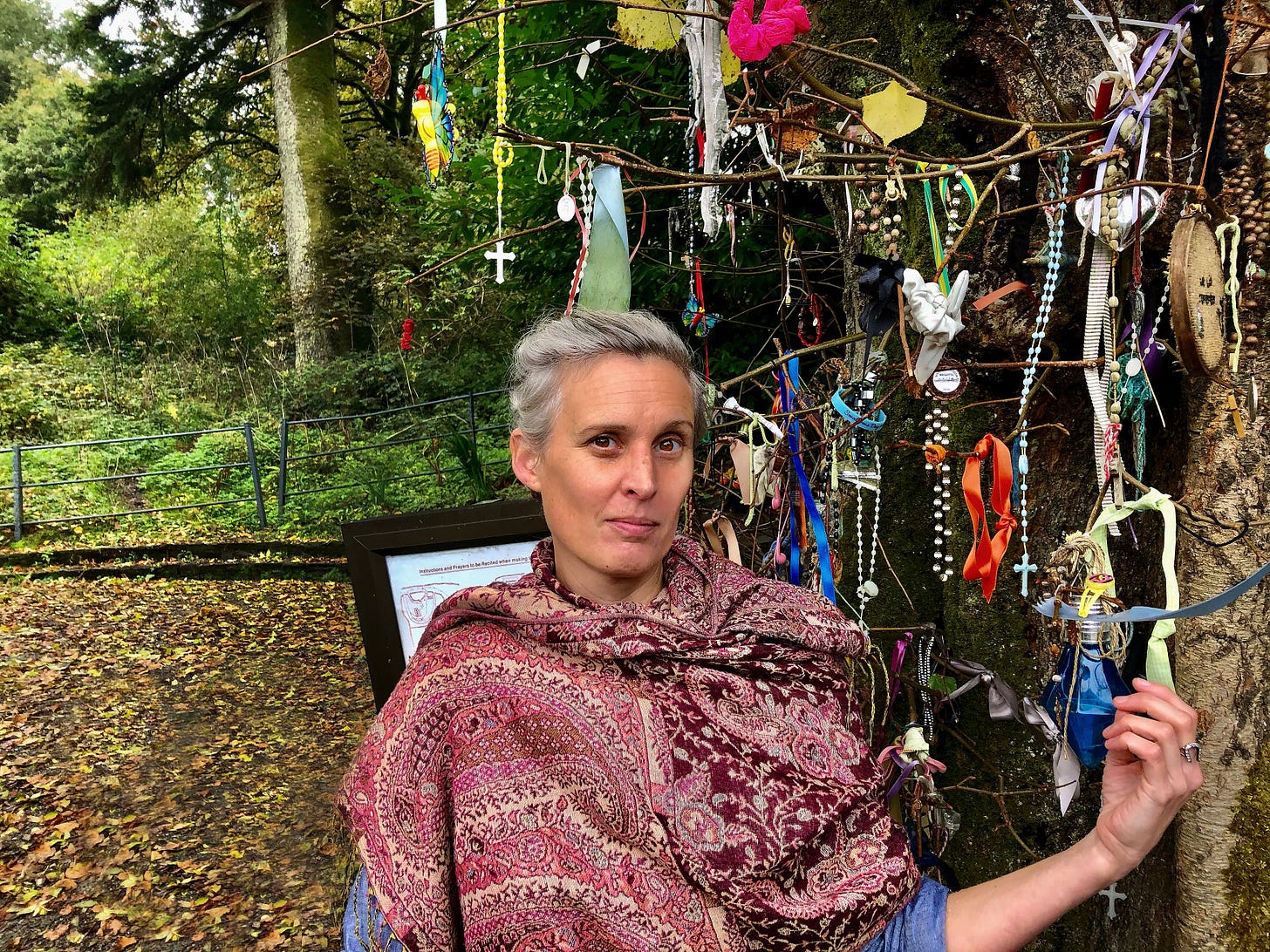



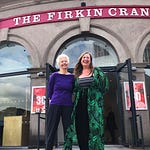

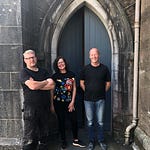

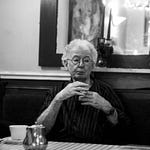
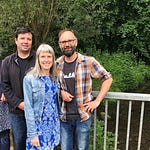

Share this post